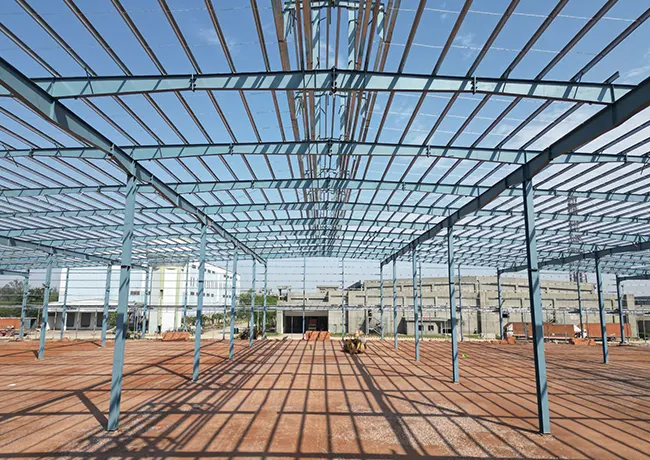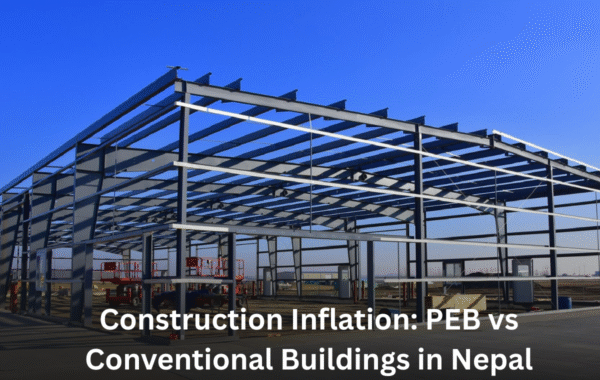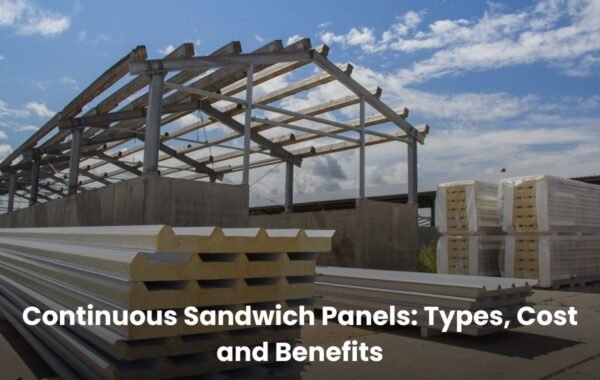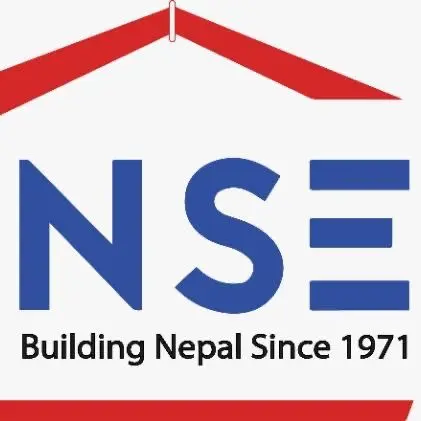
Ultimate Checklist for Choosing the Right PEB Company in Nepal
In Nepal, the demand for pre-engineered buildings (PEBs) is increasing rapidly due to their economical construction, strength, and speed of assembly. Be it a factory, warehouse, commercial center, or even a resort, choosing the best PEB company in Nepal is important. But with so many to choose from, how do you go about making the correct decision?
This detailed list will walk you through every critical step of choosing a PEB manufacturer so that your choice is one that is dependable and enduring, manufactured as promised, and of real value.
Experience and Reputation
A company’s track record speaks volumes. Before finalizing a PEB company in Nepal, research:
- Years of Experience – How long have they been in the industry?
- Completed Projects – Look for case studies, client testimonials, or online reviews.
- Industry Reputation – A reputable company will have positive feedback from previous clients.
Moreover, businesses that have been operational for over 5 years within the PEB sector tend to be more resilient and are easily able to handle large scale projects.
Furthermore, smoother project execution, compliance with local standards, and efficient engineering processes are the benefits of possessing industry experience.
As a customer, you need to review sites such as Google and LinkedIn, as well as construction directories like Yellow Nepal, BuildPro.
And even Nepal Construction Mart have reviews and endorsements that deserve your attention. They showcase the reputation of the companies.
Additionally, Well-known businesses usually have loyal customers and include endorsements from important sectors (like manufacturing, logistics, etc.). They showcase the reputation of the companies.
Quality of Materials Used
The durability of pre-engineered buildings depends on the materials used. As a valuable client, you must ensure the company provides:
- High-quality structural steel for strength and longevity
- Corrosion-resistant coatings for protection against harsh weather
- Eco-friendly PEB structures that promote sustainability
Moreover, while selecting a PEB company in Nepal it requires considering material quality. Therefore, you must pay attention to their use of structural steel IS 2062, corrosion protective zinc or epoxy coatings, and energy efficient insulating panels such as PUF or rockwool. Galvalume or color coated GI roofing and wall sheets also add to the strength of the structure in Nepal’s climate.

Additionally, do remember to check compliance with NBC and ISO standards and request for test certificates of materials.
Dependable materials provide structural strength, weatherability, and durability which increases the return on your investment in the building.
Lastly, ask about certifications and compliance with global and Nepalese building standards before making a decision.
Customization and Design Capabilities
In customizing a structure for a PEB company in Nepal, it isnecessary to evaluate their ability to design considering the need to accommodate specifications.
With the help of 3D modeling, CAD, and advanced software for structural analysis, a good provider can ensure proper design accuracy by offering implementable designs that are customized to the client’s specific needs.
This guarantees value for money by delivering optimal load-bearing structures with greater efficiency. Moreover, you must confirm if the company has worked on agro buildings, green buildings, cold storage units, commercial showrooms, or industrial warehouses.
An understanding of these sectors indicates that the provider is capable of offering flexibility in design while upholding PEB standards and engineering Nepal’s building codes.
Here are few additional things to look for:
- Designs focusing on enabling change in terms of expanse or additional modifications in the future
BIM compatibility (Building Information Modeling) for pre-planning and issue detection - Zone-specific seismic designs which are essential to Nepal
- A strong design skills to building requirements can guarantee innovative, efficient, functional, and budget-friendly solutions customized to strategically serve your needs.
Cost Transparency and Competitive Pricing
When selecting the best PEB company in Nepal, the transparency regarding costs should be equally important as quality.
However, they are cheaper than conventional buildings, but each supplier may have a completely different pricing structure.
You should always ask for a detailed quotation, breaking down the costs for material, fabrication, delivery, erection, and optional extras such as insulation or ventilation. This will let you see where your money is going.
Also check into how many hidden charges exist that you ought to be aware of, such as crane rental, foundation bolts, or overtime labor, just for a surprise during installation. A good supplier will be candid about all costs in writing.
However, it is tempting to go for the lowest bid. The cheapest bid may, use substandard materials or service.
Instead, you can go for companies that offer value for money: fair prices backed by proven experience, timely delivery, and certified materials.
Example:
Company A offers a quotation of NPR 25 lakh for a 5,000 sq. ft. warehouse with galvanized steel, insulation, and full erection. Company B, with a quotation of NPR 20 lakh, excludes insulation, using painted steel instead. Although cheaper that way, Company B will contribute to higher maintenance and energy costs later.
You can look for:
- Transparent BOQ (Bill of Quantities)
- Written price guarantee (fixed during the contract period)
- Value additions like free site inspection or design support
Moreover, a company where there is an open communication concerning price and which delivers on its expectations is the best partner in the long run.
Compliance with Nepal’s Building Codes
When selecting a Pre-Engineered Building (PEB) company in Nepal, you must ensure the compliance with the nation’s seismic safety standards, as the country Nepal is vulnerability to earthquakes.
The Nepal National Building Code (NBC), particularly NBC 105:2020, outlines the requirements for seismic analysis and design of various building structures.
Here are few key considerations that you must look for;
- Adherence to NBC 105:2020: Ensure the PEB company strictly follows the seismic design provisions specified in NBC 105:2020. This code applies to all buildings, including those constructed with structural steel, and mandates specific design criteria to withstand seismic forces.
- Engineering Expertise: The company should employ advanced engineering practices, including structural analysis and design methodologies that align with NBC 105:2020. This includes considerations for load combinations, structural irregularities, and drift limitations.
- Use of Quality Materials: Materials used should meet the standards set by the NBC, ensuring durability and resilience against seismic activities.
- Sustainable Construction Practices: Opt for companies that incorporate sustainable building solutions, aligning with both safety and environmental standards prevalent in Nepal.
Manufacturing and Installation Capabilities
A leading PEB company in Nepal needs strong in-house manufacturing capabilities to maintain strict quality control.
It should use cutting-edge machines like CNC systems and automated welding to make steel structures that can withstand earthquakes and resist rust suitable for Nepal’s weather and land.
Moreover, a capable installation crew, taught seismic-resistant methods and skilled at working in Nepal’s varied terrain, gets projects done and well.
The company should show it can handle both small jobs (like farm sheds) and big ones (like industrial warehouses), with a history of delivering custom long-lasting solutions.
Having all the skills from design and making to moving and building helps things run , cuts down on coordination problems, and makes sure everything follows Nepal’s building rules.
After-Sales Support and Maintenance
When choosing a PEB company in Nepal, you must prioritize strong after-sales support to ensure long-term reliability in the country’s challenging climate and seismic conditions.
Here are few things to look for:
- Warranties: Look for companies offering comprehensive warranties, typically ranging from 5 to 10 years, covering material defects and workmanship. These warranties are essential for protecting steel structures, particularly for projects like warehouses in regions prone to harsh weather or seismic activity.
- Maintenance Services: Choose firms that provide regular inspection and maintenance programs tailored to Nepal’s conditions, such as monsoon damage prevention or seismic wear checks. Companies operating in industrial hubs often offer proactive maintenance plans to ensure structural longevity and minimize weather-related damage.
- Technical Support: Opt for providers with dedicated technical support for modifications, repairs, or expansions. This is especially valuable for businesses in growing areas, where flexibility to adapt structures to changing needs is critical.
Moreover, strong after-sales services demonstrate a company’s commitment to quality and client satisfaction, safeguarding your investment against Nepal’s unique environmental challenges.
Therefore, you should always review company websites for detailed warranty and service information to ensure they meet your project’s needs.
Sustainability and Green Building Solutions
When choosing a pre-engineered building (PEB) company in Nepal, you must always prioritize sustainability to ensure cost-effective, eco-friendly projects suited to the country’s climate and seismic conditions.
Here are few things you can focus on:
- Sustainable Materials and Designs: Seek companies using recyclable steel and energy-efficient features like insulated panels. For example, some Kathmandu warehouses use roofing to cut cooling costs, while Pokhara sheds minimize material waste.
- UN Sustainable Construction Goals: Choose firms reducing waste or incorporating features like rainwater harvesting, as seen in Patan’s industrial sheds or Lalitpur’s commercial buildings.
- Reusable Solutions: Opt for modular designs with bolted connections for easy reuse, like Biratnagar’s relocatable factories or Terai’s naturally ventilated storage units.
Conclusion
Selecting the right PEB company in Nepal is a crucial step toward building a durable, cost-efficient, and sustainable structure.
By following these mentioned checklist and focusing on experience, material quality, pricing transparency, compliance, and sustainability, you can make an informed decision.
Looking for a trusted PEB manufacturer in Nepal? Contact PEB Nepal today for expert guidance, high-quality materials, and customized solutions that meet your needs.
Read more: Applications of Pre-Engineered Buildings in Nepal: From Factories to Resorts



